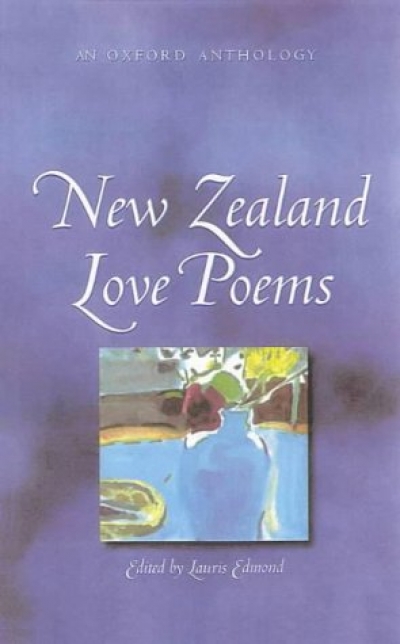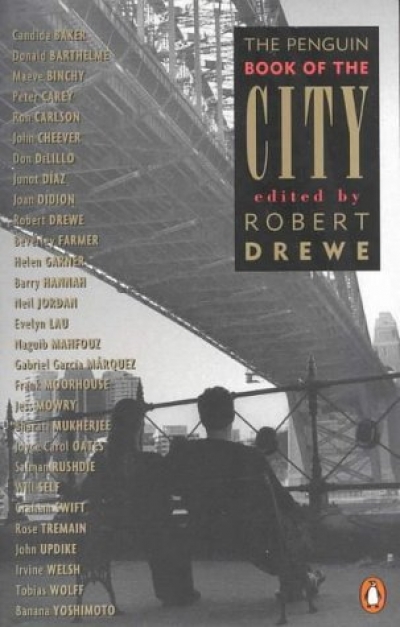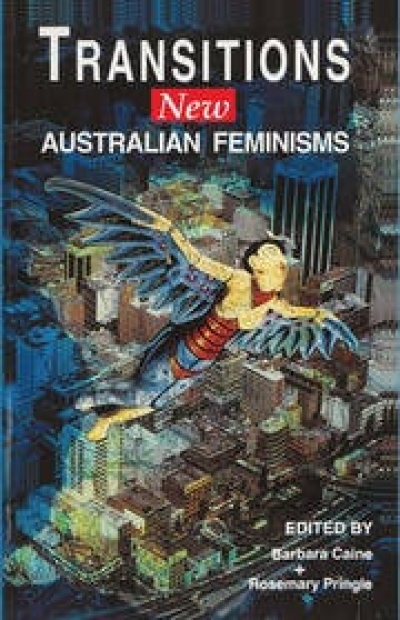Anthology
Who’s Who in Twentieth-Century World Poetry edited by Mark Willhardt and Alan Michael Parker
In his foreword to this reference work, Andrew Motion says that such books ‘exist to provoke argument’. In their preface, editors Willhardt and Parker suggest that ‘to compile such a volume as this may seem absurd; to do so successfully may be impossible’. Forewarned is forearmed, it would seem.
Despite all this, the book is useful – about the only adjective to which a reference work should reasonably aspire. Of course, it may also seek to construct an honour roll for posterity or update the canon. Or it might simply be part of a continuing battle for ‘cultural space’. In many ways, reference works like this are the counterpart of anthologies, which are also reviewed in terms of ‘who’s in and who’s out’.
... (read more)Earth Is But a Star: Excursions through Science Fiction to the Far Future edited by Damien Broderick
From its mix of fiction and criticism to the format of its contents page, this collection is clearly a follow-up to Helen Merrick and Tess Williams’s feminist science fiction anthology, Women of Other Worlds (1999). There are, however, major differences. Women emerged from a unique and unrepeatable event, a meeting of live minds at the twentieth WisCon Feminist SF Convention. It is wildly eclectic, often irreverent, ranging from recipes and e-mail debates on gender to full-blown critical articles on female fan culture, united only by the feminist perspective and the contributor’s presence at WisCon. Its reprints go back no further than 1986. The reader is encouraged to dip. In contrast, Earth is united by its ostensible theme, ‘far futures’, with reprints from as far back as the 1930s, but only ‘proper’ fiction – stories, excerpts from novels – and ‘proper’ critical pieces. The overall tone is sober if not solemn, and the single-minded thematic focus produces a strong similarity to Vegemite. Small dips are quite enough.
... (read more)15 Kinda of Desire by Mandy Sayer & Willow Tree and Olive by Irini Savvides
Husbands, wives, and lovers, desperadoes, mistresses, adulterers, transsexuals, prostitutes and paedophiles: these are some of the people who populate Mandy Sayer’s 15 Kinds of Desire. Despite such a roll-call of confronting players, Sayer’s short story collection is not so much an itemisation of sexual peccadilloes but an exploration into various gradations of love, sex and obsession.
... (read more)New Zealand Love Poems: An Oxford anthology edited by Lauris Edmond
For those who haven’t yet discovered the riches of New Zealand poetry, this anthology should provide an appetite-whetting introduction. Edited by one of New Zealand’s finest poets, the late Lauris Edmond (1924–2000), it bears the stamp of a thoughtful mind and a judiciously discriminating sensibility, evident in her own work as in her selection from that of others. For she has neither lost her nerve and opted out of inclusion nor claimed any undue space. Yet her own work is central to the nature of the volume. When I came to write this review, after reading steadily from page one to page 257 and closing the covers, I knew that there were certain phrases, images and poems that had struck root, were memorable for me, and were shaping my responsiveness to the volume. Interestingly enough, I didn’t always remember which poet was responsible – for the structure of this anthology (of which more later) is such that it is an anthology of poems first, and poets second.
... (read more)Joy Hooton must know more about Australian autobiography than anyone else. Her critical and bibliographical works are now complemented by this marvellous anthology – humorous, plangent, and surprising. It replaces the more literary Penguin anthology by the Colmers (an important collection, though now somewhat outdated), and more than accounts for the period not dealt with in Gillian Whitlock’s impressive UQP anthology of contemporary Australian autobiography.
... (read more)Personal Best edited by Tessa Duder and Peter McFarlane
I appreciate the irony. I deliberately used the title Personal Best for anthologies I once edited (1989, 1991) as a way of saying that there are personal achievements outside the world of sport, and now I am being asked to review an anthology titled Personal Best which is a collection of stories about sport (for young adult readers).
... (read more)Fathers in Writing edited by Ross Fitzgerald and Ken Spillman
I am still puzzling over why Ross Fitzgerald and Ken Spillman chose the odd title, Fathers in Writing, for this anthology of personal essays. Because of its academic resonance, I first assumed that this book would be a scholarly analysis of father figures in literature – or, perhaps, following on from the work of certain feminist theorists, that it would look at how different valorisations of ‘fatherhood’ are embedded in language itself. Then, once I learned that this was an anthology of Australian writing, the title led me to expect a collection of extracts from literature previously published. Or, if these were newly commissioned essays, that they would be pieces in which the difficulties and pleasures of the act of writing itself would take centre stage.
... (read more)This attractive collection of short pieces – mostly fiction – reminded me of the old music-hall adage: start with a bang and leave the best acts till the end. Robert Drewe’s selection certainly begins with a bang. John Updike’s ‘The City’ is the story of a man who arrives in a unnamed city, and sees no more of it than an anonymous hotel room and the hospital where he has his appendix removed. By the end of this cunningly crafted fable, we realise that the city’s fascination for Carson, the central character, is directly related to its being unknown, unseen and as much a cipher (and perhaps a menace too) as it was when he arrived, decidedly queasy from the airline’s freeze-dried peanuts – or so he thought at the time.
... (read more)Transitions: New Australian feminisms edited by Barbara Caine and Rosemary Pringle
In the last eighteen months three Australian feminist collections have appeared, each apparently addressed in its different way to the women’s studies market. Each title, or subtitle, is anxious to proclaim itself of the moment: Australian Women: Contemporary feminist thought (OUP); Contemporary Australian Feminism (Longman Cheshire); and now, only prevented by the limits of the print medium from flashing its red light, Transitions: New Australian feminisms from Allen & Unwin. To cultural analysts that extra ‘s’ will speak volumes.
... (read more)The Oxford Companion to Twentieth-Century Poetry in English edited by Ian Hamilton
As a preliminary I must say, frankly, that I am hardly interested in canonised literary culture. And having known for a long time that it is absurd to criticise the conventional literary establishment and then expect its attention or affection, I can also say that canonical inclusion has never been a personal aspiration. However, I am alert to the ramifications of the processes of historicisation. I don’t want to sound high-falutin’ but I’ll begin with Nietzsche who began his enquiry into the value of history with a gem from Goethe: ‘In any case I hate everything that merely instructs me without augmenting or directly invigorating my activity.’
... (read more)










